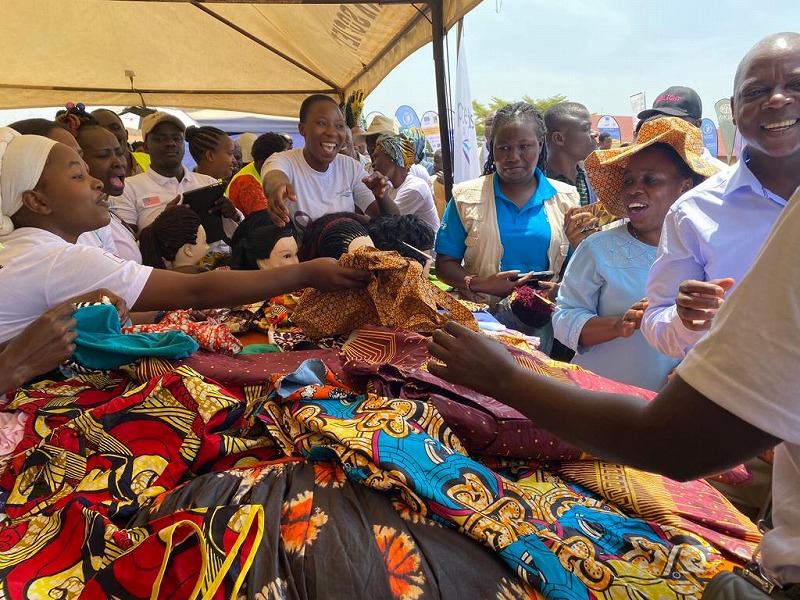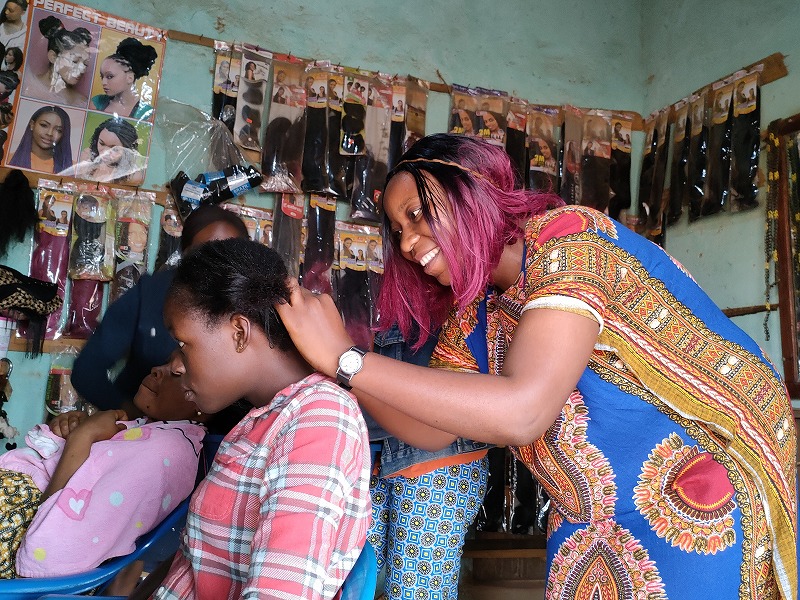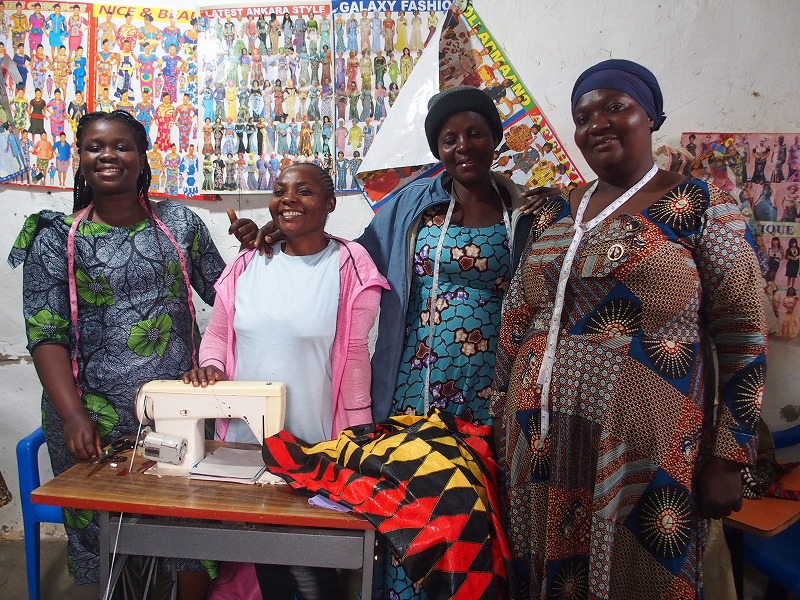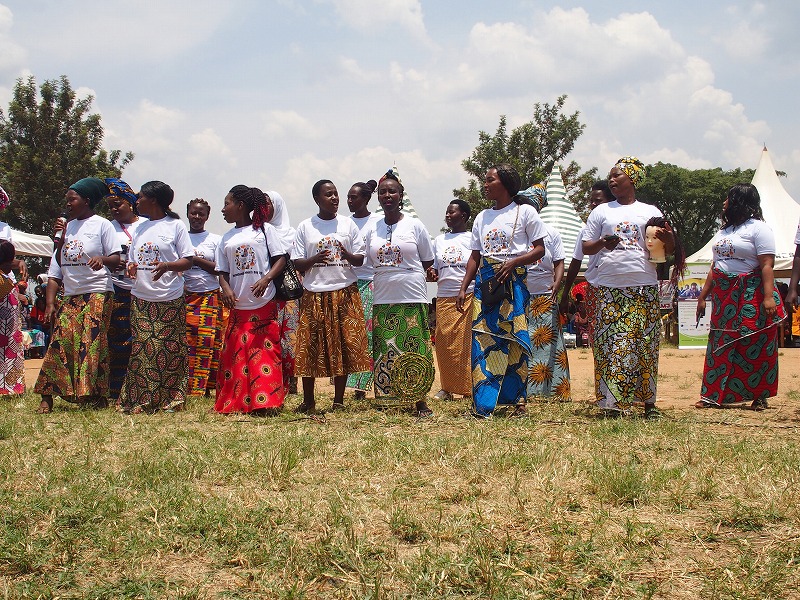World Refugee Day 2023: an Interview with Megumi Yamamoto about Supporting Refugees in Uganda
In honor of World Refugee Day on June 20, Peace Winds would like to bring you the stories of some of our staff members who work to support refugees around the world. They spoke with us about their work with Peace Winds and their hopes for the future.
Megumi Yamamoto lives and works in Uganda supporting refugee women through vocational training.
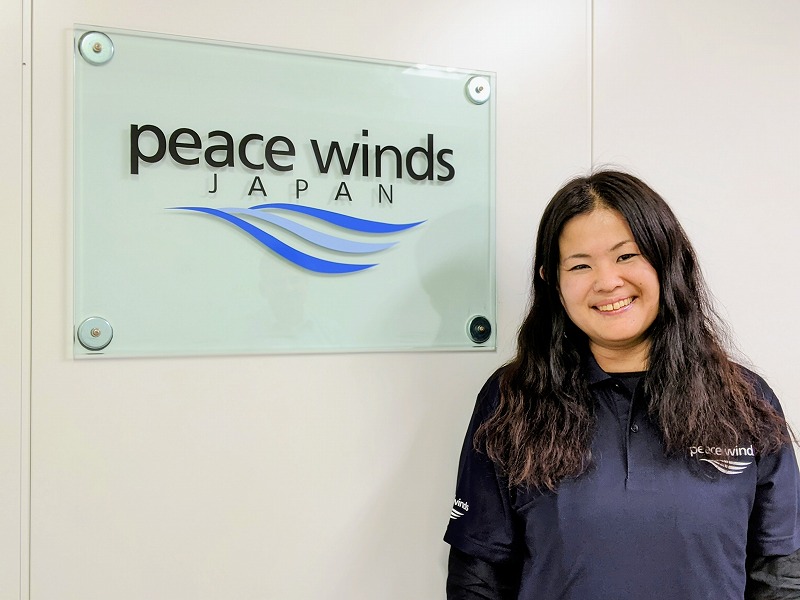
–Ms. Yamamoto, where do you work and what kind of support are you providing to refugees?
Yamamoto: We are based in Kampala, the capital of Uganda, and we provide support in refugee settlement areas in northern and western Uganda. In the north, there are refugees fleeing conflict in South Sudan, and in the west are refugees from the Democratic Republic of Congo. In addition to providing water supply and sanitation assistance, such as installing hand-washing stations and toilets, and sanitation promotion activities, we have constructed women’s support centers in both districts to provide vocational training for women’s independence.
–It is said that Uganda hosts the most refugees out of any country in Africa, and you say that the refugee policy is very tolerant. What is this like?
Yamamoto: Ugandans are aware that others have helped them as refugees in the past, so now it is their turn to help those in need. While many countries usually accept refugees “temporarily,” Uganda has a very tolerant policy. Since around 2013, the number of refugees Uganda accepts has increased, and the term “refugee settlement area” is used instead of “refugee camp.” When refugees arrive, they can rent living space and land for farming. There are no gates or fences in the residential areas, so you can come and go freely, making it easy to work. Local hospitals and schools are accessible and integrated for both residents and local host communities.
There is also a rule that 30 percent of humanitarian assistance from outside organizations must benefit the host community, meaning that there is something for the host community to gain as well. I think that makes it easier for them to accept refugees.
–The theme of World Refugee Day this year is “hope.” I get the impression that vocational training to support women’s independence creates a lot of hope.
Yamamoto: We built a women’s support center in the Invepi refugee settlement in the northern part of Uganda and the Chaka II refugee settlement in the west. We’ve done trainings for things like making soap, and we also provide training in basic business knowledge such as accounting and literacy. In addition, in line with UN Women’s recent attempts to change the concept of gender roles, we have expanded our training to areas that were traditionally thought of as “men’s work,” such as electricity, plumbing, and brickwork.
–It sounds like fulfilling work. How long are these classes?
Yamamoto: For sewing, we offer half-day classes five times a week. For beauty and barbering, half-day classes are held three times a week. Beneficiaries take these classes for about three and a half months. At the end of the course, you take a test administered by a government agency to confirm that you have acquired the knowledge and skills, and if you pass, you receive a certificate of completion. We are all very proud of these women. Many of them already have their own shops, and others have learned to sew and are working at other people’s shops to gain new customers.
–I imagine that getting a job helps build confidence.
Yamamoto: That’s right. Even during the classes, everyone is lively, and it brings us joy. I think that vocational training is more than just acquiring skills and being able to earn money, it really impacts your mindset.
One woman told me this story. People used to look down on her because she couldn’t earn her own money, but now that she’s earning an income, she’s gaining her husband’s respect. Another woman said that she used to have to get her husband’s permission to buy necessities like sugar and salt, but now that she earns her own money, she’s doing what she wants.
Before the training started, some women said that if they could make money, they wanted to eat good food. Of course, a “good meal” doesn’t mean a feast, but rather something like “I want to eat two meals a day instead of one” or “sometimes I want to buy meat for my family.” After completing the training, the joy of finding their independence is even greater than that.
Everyone is really creative, and when they learn to sew, they make cloth napkins, bags, and hats from scraps. Menstruation is also such a big problem that girls can’t go to school because they can’t get sanitary products.
In the past, we also provided training on electricity and plumbing, but when one woman saw a recruiting leaflet, she said, “I thought this was for men,” and she didn’t think she could do it. I hope that I can continue to help women overcome these challenges in the future.
–What is your hope for the future?
Yamamoto: In a world where inequality is expanding, it is difficult to achieve “equal outcomes,” but I hope that we can create a society where opportunities are given to those who wish to take advantage of them. I think it would be great if both men and women had more opportunities to challenge their skills. I look forward to continuing to work toward this goal.
